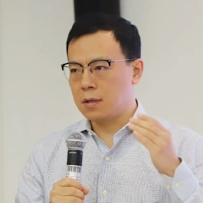News


AI for Traditional Chinese Medicine standardisation and modernisation and its integration with modern biomedicine
Day 2: 17 June, 1:30 PM - 1:50 PM GMT +3 / 6:30 PM - 6:50 PM Your local time (20 min)
Booked in Online
Modern biomedicine has achieved remarkable advances in drug development, yet translating experimental findings into effective human treatments remains a challenge due to the complexity of human biology, individual variability and the high-dimensional nature of disease mechanisms. Traditional Chinese medicine (TCM), with its millennia of clinical experience and personalised, symptom-driven approaches, offers a unique dimensionality reduction principle – Syndrome Differentiation – that bridges patient symptoms with herbal treatments. However, the lack of objective, quantitative frameworks and molecular-level validation limits TCM’s integration into modern biomedicine.
In this talk, we present an artificial intelligence (AI)-driven framework that leverages Transformer-based deep learning to construct an interpretable, biologically meaningful embedding space for TCM symptoms and herbal treatments. Our model quantitatively captures the non-linear relationships in TCM clinical data, enabling systematic analysis of treatment efficacy and symptom-herb interactions. By integrating biomedical data into this TCM-derived space, we bridge the gap between empirical knowledge and modern science, offering a quantitative, systems-level understanding of disease mechanisms and therapeutic responses.
Furthermore, we demonstrate how this framework establishes a comprehensive knowledge graph for drug discovery and repurposing, facilitating the sustainable development of novel therapies. Our approach not only modernises TCM through AI-powered standardisation but also enhances its clinical reliability, fostering greater acceptance in global healthcare systems. By harmonising TCM’s holistic wisdom with cutting-edge computational methods, we provide a scalable, integrative tool that complements modern biomedicine—advancing personalised, sustainable healthcare for global well-being.